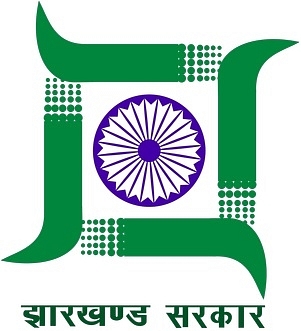
Jharkhand Votes for Redemption
With 42 out of 81 seats in the Assembly for the ruling party for the first time in its 14-year-old history, and a Prime Minister at the Centre whose image is at stake, Jharkhand’s hopes for redemption have never been higher.
Since the advent of this small state, carved out of a former, much larger Bihar, Jharkhand has manifested the flip side of the ‘smaller state, better state’ mantra. For reasons varying from avarice to puerile politicking, Members of the Legislative Assembly have defected, bringing down governments formed on wafer-thin majority. Since 2000, the state has seen nine chief ministers, with Arjun Munda and Shibu Soren appearing thrice, and three terms of President’s Rule. The adivasi demand for a province of their own has resulted in no clear benefits for the Scheduled Tribes, who constitute 27 per cent of the population, even as Biharis and members of other denominations, whose contribution in building the region cannot be discounted, feel they have been politically subdued for a virtually racist reason.
Rarely a business deal with the state government sees the light of the day without some influential palms being greased. In the backdrop of such history of rampant corruption, the BJP has won a decisive mandate — enabled by the campaign of Prime Minister Narendra Modi who made sure every Lok Sabha constituency was visited at least once — to rule the state, and is now left with no excuse of instability that could handicap its actions against crooked government functionaries. Yesterday’s journalistic fascination with the question as to who the next Jharkhand chief minister would be serves no public interest. As examples of chief ministers chosen for Haryana and Maharashtra suggest, names like those of Saryu Rai, Raghubar Das, Sudarshan Bhagat and Sunil Singh floating around in the media space are not important; the fact that Munda has lost in his constituency means nothing, and the query whether the chief minister will be a non-tribal is downright petty. The chief political executive of Jharkhand must execute the prime minister’s plans to revive its part of the ‘India Story’ — that is how things work under Modi — and the man at the helm is not known to suffer fools.
The verdict is also a resounding slap on the face of the ragtag ‘Janata Parivar’, a band of casteist socialists whose dogmatic ideology, governance model and antisocial actions have reduced the eastern wing of the country into a tale of perpetual misery, from where thousands of poor and middle class people flee everyday to relatively capitalist pastures in search of employment. In what was a poor commentary on the state of affairs of the media, news television spent the whole of last evening giving cry babies of the Janata Dal (United), Congress and their journalist friends ample footage to voice ‘concerns’ the electorate has proved it has no stomach for, whereas the ‘intellectuals’ spared not one phrase for the state of the economy of Jharkhand.
Transparent bidding followed by accountable reallocation of the coal blocks — the previous distribution of which was cancelled lock, stock and barrel by the Supreme Court — are procedures whose completion the state with the country’s 40 per cent mines and mineral resources is awaiting with bated breath, as factories across Jharkhand have halted work for lack of adequate coal supply. The state power board owes Tenughat Vidyut Nigam Ltd, which buys coal from Central Coalfields Limited, some Rs 2,700 crore. This sector is calling for both fiscal prudence and administrative overhaul. With around 54 per cent of its people poor and the state producing only half the foodgrains it consumes, revival of agriculture on the fertile soils using modern scientific methods should be another priority area.
Further, medical practitioners’ presence in primary health centres must be ensured. The menace of Maoism, which has so far claimed the lives of thousands of civilians and hundreds of security personnel, warrants stern action. And one cannot tire emphasising the need for fighting corruption epitomised by the Madu Kodas, Enos Ekkas, Harinarayan Rais, Kamlesh Singhs, Officers on Special Duty, personal secretaries and sundry bureaucrats. The problems are endless, but with 42 out of 81 seats in the Assembly for the ruling party for the first time in its 14-year-old history, and a Prime Minister at the Centre whose image is at stake, Jharkhand’s hopes for redemption have never been higher.